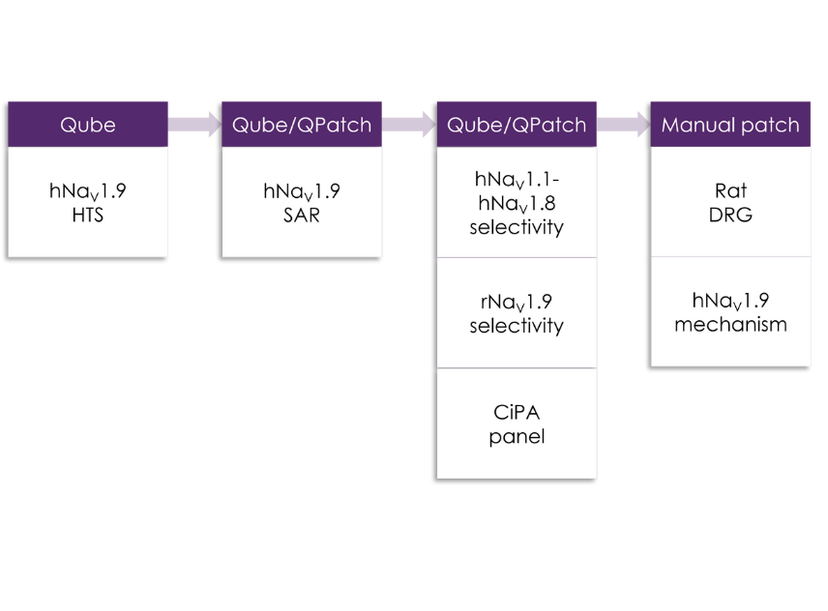Metrion Biosciences launches assay to strengthen screening portfolio and advance research on new medicines for pain
Validated drug discovery assay overcomes previous challenges in targeting NaV1.9 ion channels for chronic pain signalling
2 May 2025
Example of Metrion’s NaV1.9 screening cascade
Metrion Biosciences, the specialist preclinical contract research organization (CRO) has launched its validated, high-throughput NaV1.9 screening assay to advance discovery and development of novel pain therapeutics.
Leveraging over a decade of electrophysiology expertise, the NaV1.9 assay, alongside Metrion’s unique combination of ion channel expertise, bespoke assays and pain research services, enables researchers to overcome traditional limitations of NaV1.9 screening and generate reproducible and decision-ready data.
NaV1.9 is a voltage-gated sodium channel selectively expressed in peripheral sensory neurones that plays a key role in pain signalling. Mutations in NaV1.9 are associated with both severe pain and pain insensitivity in humans. Despite its potential as a non-opioid therapeutic target, research has been limited by difficulties developing stable heterologous expression systems.
Metrion’s new NaV1.9 assay complements the company’s existing portfolio of efficacy and safety screening assays, adding new capabilities to accelerate and de-risk preclinical programmes, unlocking deeper insights into NaV1.9 pharmacology. Designed using a stable and validated CHO cell line, the assay has been developed and optimised in-house for high reproducibility and low variability and is available using both human- and rat-derived clones, providing insights into species selectivity for the development of more efficacious therapeutics.
The assay completes the company’s full suite of pain-related sodium channel assays to provide selectivity profiling across NaV1.1 to NaV1.9. Metrion’s offering features a comprehensive portfolio of off-target counter screens, including other pain related ion channel targets and a CiPA panel for cardiac safety risk assessment.
The company also provides access to manual clamp-based mechanistic and translational assays, and automated patch clamp using the Qube 384 to provide highly sensitive, rapid analysis of large candidate libraries. Additional support for hit-to-lead and lead optimisation, streamlining compound evaluation and reducing project timelines is also provided.
Want the latest science news straight to your inbox? Become a SelectScience member for free today>>
